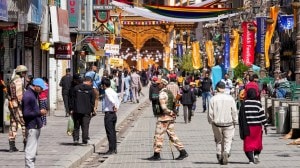The United Kingdom has long struggled with the murky history of so-called grooming gangs, which have sexually abused thousands of young girls over the years. The issue has divided UK politics. The perpetrators of several high-profile cases that garnered media attention were found to be men of Pakistani origin. With a section of politicians and public figures focusing on these cases, researchers have suggested that such ethnic framing can hamper efforts to deal with the sexual exploitation of children.
The debate was reignited when billionaire Elon Musk waded into the issue, accusing UK Prime Minister Keir Starmer of failing to curb the menace of gangs that groomed young girls and sexually exploited them. He even called for Safeguarding Minister Jess Phillips to be jailed after she refused to sanction a government inquiry into the history of child abuse in the town of Oldham. Phillips instead suggested that a local commission be set up along the lines of those established in Rotherham and Telford. The Conservatives have criticised the ruling Labour Party, claiming they have “abandoned” the victims of these crimes.

Critics argue that Musk has raised the issue to target Starmer’s Government and bolster the far-right party Reform UK, known for its anti-immigrant stance.
Story continues below this ad
How rampant is the grooming gang problem? While group-based crimes account for only a small percentage of child sexual exploitation cases in the UK, the media attention and significant public concern have led to widespread deliberation in the country. Discussions have also focused on the administrative failures that have resulted in victims being seen as perpetrators or left unheard.
What does the data show?
Of the more than 1.15 lakh sexual offences against children reported in the UK in 2023, as many as 4,228 (3.7 per cent) were group-based crimes, according to data released by the police. Twenty-six per cent of these crimes took place within families, while 17 per cent involved groups, including grooming gangs. Schools, religious places, community centres, and other such institutions accounted for nine per cent of the group-based crimes.
A task force set up to address grooming gangs in April 2023 by then prime minister Rishi Sunak arrested over 550 suspects in its first year of operation.
Cases of grooming and sexual exploitation
Networks of abusers that groom young girls have been uncovered in multiple cities in England, adding to public concern. These “gangs” operate by befriending underage victims, often using alcohol, substances, and gifts to manipulate them. In most cases, the victims are vulnerable children living under state care or in broken homes.
Story continues below this ad
The Oldham case, which has generated fierce debate this week, refers to social media concerns between 2011 and 2014 regarding the sexual exploitation of children and its alleged cover-up by the town council. An independent report released in 2022, however, stated it found “no evidence” of such a cover-up or widespread sexual abuse at local shisha establishments or by taxi drivers. The report did point out that local authorities had failed to protect some children from grooming and exploitation. There have been growing calls from the public to expand the scope of the inquiry into the Oldham cases.
In 2024, an independent review commissioned by Greater Manchester Mayor Andy Burnham found rampant grooming and exploitation of young girls in Rochdale. It also highlighted the failure of authorities to properly investigate these cases between 2004 and 2013. Nine perpetrators were convicted, of which eight were British-Pakistani men. The report found that young girls were drugged and raped above takeaway shops and transported via taxis in exchange for cash.
The Rochdale review harks back to a 2014 report by Professor Alexis Jay, which examined the activity of grooming gangs in Rotherham between 1997 and 2013. The report states that 1,400 children, some as young as 11, were exploited during that period. It outlines how children were threatened with petrol or guns. The report points out that a majority of the victims were white girls and the perpetrators were of Pakistani heritage.
Similar cases have been found in Telford, Oxford, Bristol, and other towns and cities.
Story continues below this ad
An Independent Inquiry Into Child Sexual Abuse (IICSA) led by Professor Jay was commissioned by the Government in 2015 and has since published a series of reports on these cases. The reports have chronicled the voices of victims, who were often blamed for their predicament or shamed after reporting the abuse. The victims have also spoken about inaction by the police and local authorities.
The ethnicity question
In her 2014 report, Professor Jay noted that council staffers “described their nervousness about identifying the ethnic origins of perpetrators for fear of being thought racist; others remembered clear direction from their managers not to do so”.
When Sunak launched the grooming gang task force in 2023, he said that perpetrators had eluded justice for too long due to “political correctness”.
In the same year, Suella Braverman, a Conservative MP and then home secretary, suggested in a column for the Daily Mail that “almost all” those involved in the “grooming gangs phenomenon” are British-Pakistani men. The newspaper later clarified that she was referring specifically to “high-profile cases such as Rotherham and Rochdale,” adding that “the perpetrators of child sexual abuse, more broadly, are a variety of ethnicities”.
Story continues below this ad
The claims linking the crime to the ethnicity of perpetrators are indeed unfounded.
Following Braverman’s statements, a letter signed by 50 researchers warned that such assertions “perpetuate misinformation, racism, and division”.
A report published by the UK’s Home Office in 2020 said there was not enough data to conclude that a majority of group-based crime offenders were Asian or Pakistani. It found that the majority of perpetrators of sexual offences against children were white.
“Some studies suggest an over-representation of Black and Asian offenders relative to the demographics of national populations. However, it is not possible to conclude that this is representative of all group-based CSE (child sexual exploitation) offending,” the report said.
Story continues below this ad
“This is due to issues such as data quality problems, the way the samples were selected in studies, and the potential for bias and inaccuracies in the way that ethnicity data is collected,” it added.
































